Webinars
Register for Upcoming P.A.C.E.-Accredited Webinars
Receive continuing-education credit when you join these webinars.

Using Molecular GI Testing to Improve Laboratory Efficiency and Patient Management
Hear from an experienced clinical microbiologist and learn about their selection criteria for molecular panels for GI testing, the impact it has had on their laboratory and patients, and the role diagnostic stewardship plays in their laboratory testing practices.
July 17, 2024
Watch Recent P.A.C.E.-Accredited Webinars
You may only receive P.A.C.E. continuing-education credit up to six months after a webinar was recorded.

The Impact of Susceptibility Results on Patients with Sepsis
Current rapid diagnostic testing may not provide enough information to determine an accurate diagnosis for acute infections and sepsis. Learn about new antibiotics and diagnostics that can produce results that help determine more effective treatments and improve patient outcomes.
June 26, 2024
The Impact of Susceptibility Results on Patients with Sepsis

The Anti-Xa Assays: Therapeutic Monitoring of Heparin
Since traditional monitoring of unfractionated heparin using the aPTT assay is unpredictable, alternative methods may be needed. Learn more about heparin monitoring and explore the use of anti-Xa assays in your clinical lab.
June 20, 2024
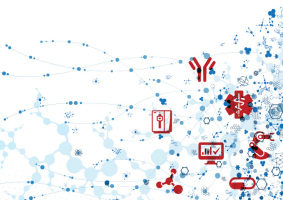
Sample Preparation for Clinical LC-MS Assays
Understand the importance of sample processing and explore different methods. Discover opportunities for automating sample preparation in your lab as well as new technologies and automated sample processing alternatives.
June 13, 2024
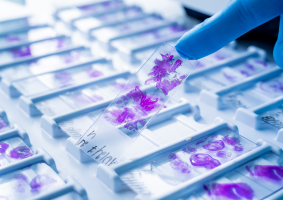
The Importance of Microscope Slides and Coverglass in the Lab
Understanding the properties of slides may help avoid potential issues during clinical tests. Learn how slides are manufactured, what types of adhesion chemistry are available, and how various slide types can improve workflows and results.
May 30, 2024
The Importance of Microscope Slides and Coverglass in the Lab

Advancing Urgent Care POC Diagnostics to Combat STIs
Obtaining results for Chlamydia trachomatis (CT)/Neisseria gonorrhoeae (NG) or CT/NG tests from a lab can take up to seven days. Learn how rapid CT/NG tests enable urgent care providers to make informed decisions about STI treatments at the point of care.
May 28, 2024

Differentiation of HSV and VZV Lesions Using Multiplex Molecular Testing
Herpes simplex viruses and the varicella zoster virus are prevalent but can be hard to distinguish and diagnose. Learn more about herpes virus-related lesions, viral differentiation, diagnostic challenges, and multiplex molecular testing.
May 7, 2024

Microbiology Results for Critical Patients: A 2023 Perspective
In this webinar, you’ll review the role of MIC test results in treating infections in critically ill patients and how they affect antimicrobial resistance. Learn how collaborations among microbiologists, clinicians, and the antimicrobial stewardship team can help improve patient care.
December 13, 2023

Revitalizing Diabetes Management in Primary Care
Learn how clinical inertia hinders optimal care and explore ways to democratize healthcare for better patient outcomes. Discover cutting-edge technologies, patient empowerment strategies, and inclusive practices that can transform diabetes management in the primary care setting.
November 21, 2023

Automating Urine Culture Plate Reading
This webinar will review one laboratory’s experience with an automated plate reading system and describe how AI-based lab automation can be quickly and easily installed to help you streamline workflows and save time.
November 15, 2023

Advances in Identifying Causes of Acute Pharyngitis
Recent studies suggest that Group A Streptococcus (GAS) and non-GAS bacteria may be the cause of pharyngeal infections. This webinar will discuss complexities of acute pharyngitis testing, emerging clinical data on non-GAS pathogens, and current and potential testing methods.
October 25, 2023
Clinical Chemistry

Common Chronic Liver Disease Causes & Laboratory Testing Options
This webinar focuses on the epidemiology, clinical aspects, signs and symptoms, and diagnosis of four chronic liver diseases. It also offers assessments to help identify at-risk patients and determine the likelihood of progression for patients with advanced liver fibrosis.
October 24, 2023
Microbiology

Collecting Data Using an Automated Susceptibility Testing Platform
Through the review of case studies and examination of custom automated susceptibility testing and reporting solutions, learn more about the multidisciplinary approach to patient management in a large teaching hospital.
October 5, 2023

Using Lab Data to Improve Antimicrobial Stewardship
The threat posed by antimicrobial resistance remains significant and may have accelerated because of the COVID-19 pandemic. Learn how results from microbiology assays can help guide clinical decisions and improve antibiotic stewardship.
January 25, 2023

Using Breakpoints to Improve Antimicrobial Resistance Detection
Providing antimicrobial susceptibility testing results to clinicians is one of the most important functions of clinical microbiology labs. In this webinar, you’ll review Open Forum Infectious Diseases data and learn how to update breakpoints to address recent requirements.
December 13, 2022

Realizing the Potential of AI in the Automated Microbiology Lab
Get an overview of artificial intelligence (AI) and machine learning (ML) and learn about new applications for the microbiology lab. The presenters will also share their experiences using an in vitro diagnostic device that incorporates ML algorithms with digital image capture.
August 15, 2022

Targeted Detection of Antimicrobial Resistance Genes
Find out how whole genome sequencing provides valuable insight into the genetic cause of antimicrobial resistance and has become a useful tool for studying the emergence of antimicrobial resistance and developing novel antimicrobials.
March 9, 2022
Oncology

Pathology: Frequently Asked Questions
Tissue processing is the primary, most complex, and one of the longest steps in the histology workflow. In this webinar we will answer frequently asked questions about tissue processing and discuss how to avoid and remedy common mistakes.
May 16, 2023
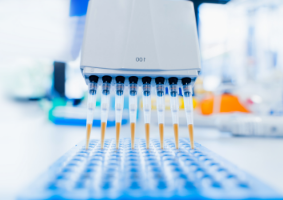
Profiling Myeloid Malignancies Using Next-Generation Sequencing
Learn more about next-generation sequencing technology and applications and how they can be used to profile myeloid malignancies. The speakers will also review how in-house sequencing can help you deliver test results faster, and ultimately improve care for patients.
September 14, 2022
Pathology

Decalcification for Routine, Advanced, and Molecular Analysis
In this webinar, you’ll review the nature of calcified tissue and the need for decalcification, evaluate different methods, and explore the effects of decalcification protocols on IHC and molecular assays.
September 27, 2023

Science of Tissue Processing
Review the purpose and function of tissue processing steps, discuss tissue processing reagents and agitation methods, and identify ways to save time and improve tissue quality in your laboratory by using a rotational tissue processor.
October 27, 2022
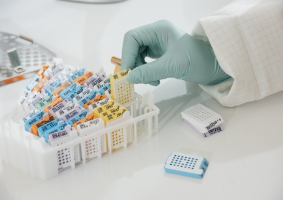
Sample Security in the Pathology Laboratory
Poor specimen identification or non-standard handling in the lab can lead to misidentified histology or cytology specimens. Learn how to improve your processes by introducing cassette and slide printers designed for security and productivity.
October 26, 2022
Point of Care

Fighting the Rise of STI Rates with Rapid Testing and Early Detection
In this webinar, you’ll explore testing guidelines and algorithms for detecting HIV and syphilis, as well as newly CLIA-waived testing options for sexually transmitted infections (STI) to help expedite diagnoses and patient care.
August 23, 2023

The Value of Rapid Antigen Testing
In this webinar, the presenter will discuss lessons learned from the SARS-CoV-2, influenza, and respiratory syncytial virus tripledemic of the 2022–2023 respiratory season and the value of using rapid antigen testing to detect and differentiate these viruses.
July 12, 2023

Point-of-Care Testing in Diabetes Management
This webinar will discuss several studies suggesting benefits from point-of-care testing for HbA1c that may help clinicians better manage patients diagnosed with diabetes, based on the American Diabetes Association Standards of Care guidelines.
November 1, 2022

Simplifying Group A Streptococcus Detection
Learn new methods for detecting Group A Streptococcus to improve efficiency and productivity, including use of different types of prepared culture media plates, chromogenic media, and laboratory automation powered by artificial intelligence technology.
April 19, 2022
Respiratory

Rapid Flu Assessment and Treatment Strategies
In this webinar, you’ll investigate the impact of early and accurate influenza diagnoses on care, infection control, and stewardship for antibiotics and antivirals and discuss diagnostic guidelines and initiatives.
November 17, 2022

Measuring Respiratory Humoral Immune Response
Review current COVID-19 antibody testing options and learn how to build a complete picture of the immune response to SARS-CoV-2 vaccines by using PCR-based neutralizing antibody titer measurements for quantifying immune responses.
October 5, 2022

Molecular Testing for Respiratory Tract Infections: Preparing for an Uncertain Flu Season and the Appropriate Use of Expanded RTI Panels
Assess the dynamics of the upcoming cold/flu season, learn about molecular diagnostic methods for COVID-19, seasonal flu, and other respiratory illnesses, and prepare to implement molecular testing for RTIs in your lab.
August 19, 2022

Upper Respiratory Infection Testing at the POC
Review practices for improving patient outcomes and efficiency, the benefits of lab centralization and decentralization, the impact of PCR testing in population health management, as well as the future state of upper respiratory testing in an endemic era.
August 10, 2022
Safety

Ergonomics in the Lab: Increasing Productivity
This webinar will help you identify the top ergonomic risk factors that are commonly found in clinical labs and present cost-effective solutions for preventing these hazards. It will also review basic and intermediate laboratory safety regulations and best practices.
June 20, 2023

Top 10 Healthcare Lab Safety Hazards
Find out how to help keep the people in your work environment safe by identifying the top 10 most frequently seen safety hazards in healthcare laboratories and learn cost-effective strategies for avoiding accidents and injuries.
June 1, 2022
Women’s Health

Starting an NGS Lab for Reproductive Health Research
In this webinar, you’ll learn exactly what’s needed to establish an NGS lab for reproductive health research—from space requirements to licensure for lab directors. Plus, explore the analytical validation requirements for high-complexity labs.
August 16, 2023

STI Testing–What to Offer and How to Offer It
This webinar will discuss for whom and under what circumstances to test for Chlamydia trachomatis, Neisseria gonorrhoeae, Trichomonas vaginalis, and Mycoplasma genitalium. It will also help you determine which tests to offer, acceptable sample types, and suitable collection methods.
May 10, 2023

Respiratory Testing Algorithms Discussion
Prepare for respiratory illness season by learning about the advantages and drawbacks of antigen versus molecular methods of detecting COVID-19 and which algorithms and syndromic panels can help you differentiate it from influenza, which has symptom similarities.
September 28, 2022
Watch Archived Webinars
Continuing-education credit is no longer available for these webinars.
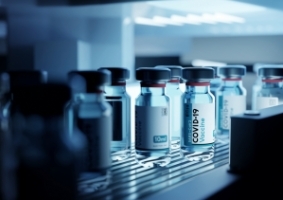
NSF 456 Vaccine Cold Storage Standards
In this webinar, you’ll review the new NSF 456 – Vaccine Storage guidelines and learn how to choose a cold storage unit that has been certified to stay within the proper temperature range to ensure the safety and efficacy of your vaccines.
January 19, 2022

Laboratory Automation in Microbiology
In this webinar, you’ll learn how an invitro diagnostic device that incorporates machine learning algorithms and digital image capture can help you maximize efficiency and improve accuracy in your clinical microbiology laboratory.
December 16, 2021

The Benefits of Combined Respiratory and Flu Testing
In the age of the pandemic, using one test or another to rule out one infection is an incomplete and potentially dangerous diagnostic strategy. Find out why combined rapid antigen testing to accurately diagnose both COVID-19 and the flu is the best choice to combat a “twindemic.”
December 15, 2021

Pathology and Chain of Custody
Explore the increasing challenges of maintaining secure chains of custody for patient tissue samples and proper asset management practices; review a case study; and discuss models currently in practice, including a simple automated model.
December 7, 2021

Clinical Microbiology and the Respiratory Pandemic
Learn how susceptibility data may influence the optimal use of antimicrobials and how collaboration with microbiology laboratories can positively impact clinical decision making in both the short and long term, particularly in critically ill patients.
November 12, 2021

Using Procalcitonin to Safely Reduce Antibiotic Use
Learn how insights from a highly sensitive and specific marker like procalcitonin can lead to more appropriate prescribing, earlier antibiotic discontinuation, improved clinical outcomes, and reduced economic burden.
November 12, 2021

Clinical Challenges of SARS-CoV-2 and Antimicrobial Resistance
The COVID-19 pandemic has made an impact on another major public health threat — resistant bacterial pathogens. This webinar will review how accurate diagnostic tools can guide the most appropriate clinical decisions regarding these life-threatening infections.
October 26, 2021
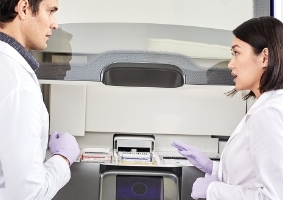
NGS for SARS Surveillance and Precision Oncology
Learn how advancements in next-generation sequencing (NGS) have made SARS-CoV-2 variant analysis and precision oncology testing more efficient. Through simple, rapid workflows with minimal hands-on time, NGS enables cost-effective and timely sequencing.
October 7, 2021

6 Steps to an Effective Lockout Program
Year after year, lockout tagout compliance continues to appear on OSHA’s Top 10 Most Frequently Cited Standards list. Learn the six key elements for a lockout tagout program in your lab or healthcare facility that will help you keep your workers safe and avoid becoming a statistic due to non-compliance.
September 22, 2021

Demystifying Molecular Testing in a Clinical Laboratory
Labs around the world are seeking ways to expand testing. In this webinar, we aim to dispel common misconceptions of laboratory developed tests by providing a comprehensive overview of what it takes for a CLIA lab to bring an in-house molecular test to market.
September 22, 2021

Pediatric Lipid Testing for Diagnosing and Treating Familial Hypercholesterolemia
Familial hypercholesterolemia (FH) is a common genetic disorder that leads to elevated low-density lipoprotein cholesterol (LDL-C) from birth.1 Learn how universal screenings for FH in children ages 9 to 11 enable physicians to help their patients address any modifiable risk factors.
September 2, 2021

How to Detect New SARS-CoV-2 Mutations
Learn how your lab can approach genetic and genomic surveillance for detecting and discovering new mutations in SARS-CoV-2 and about the major molecular diagnostic methods and common molecular viral targets used for testing patient samples for SARS-CoV-2.
